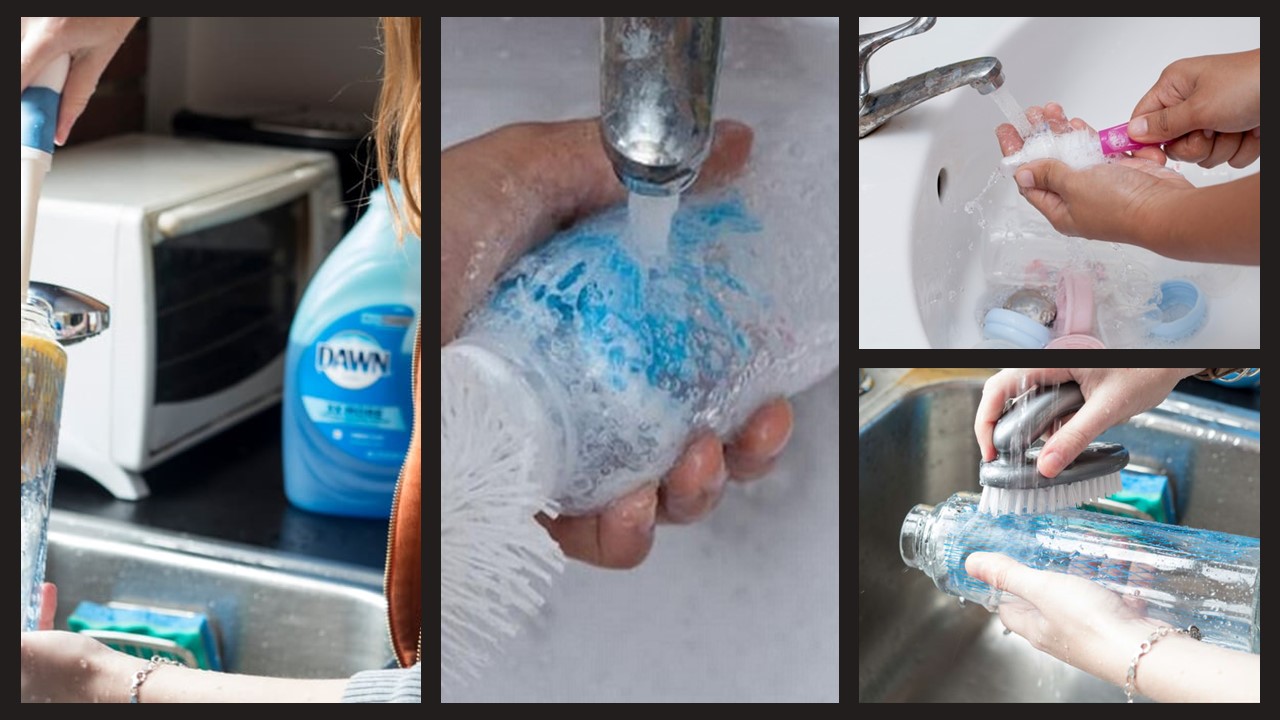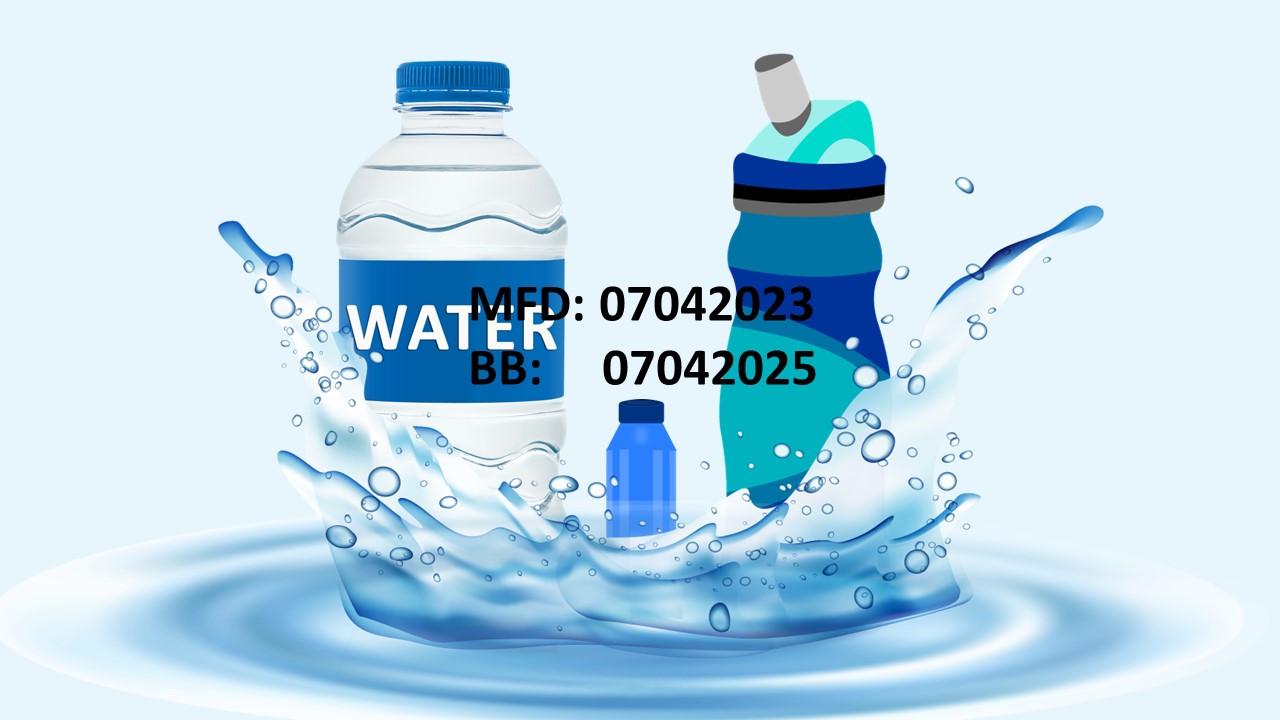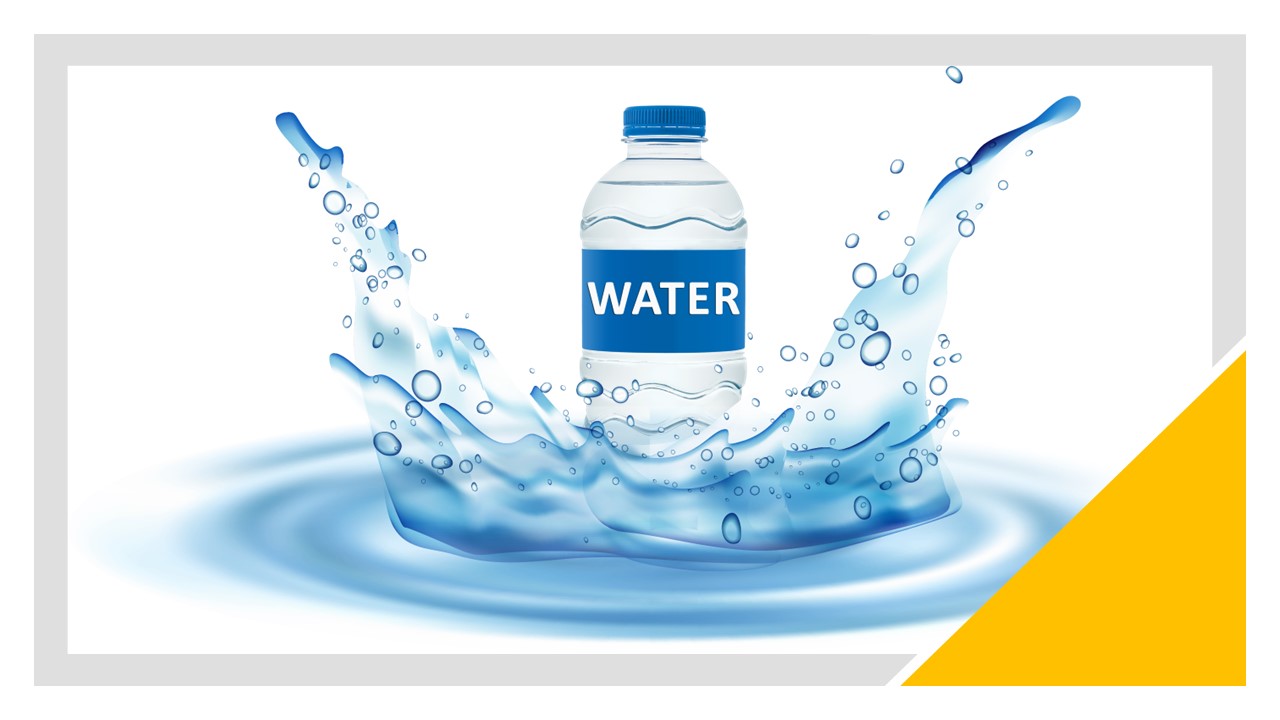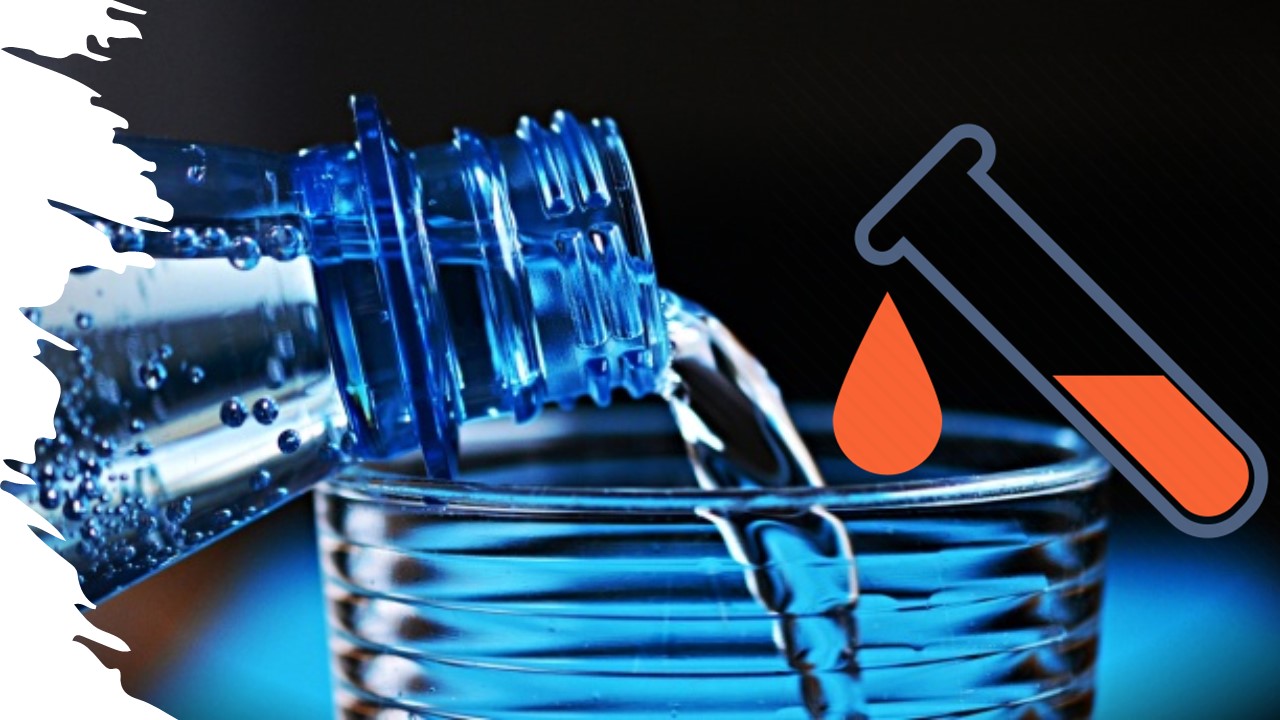Why Does My Water Bottle Smell Musty
Do you ever wonder and asked, “why does my water bottle smell musty?” If so, you may want to pay attention. According to a study, your water bottle could be harboring dangerous bacteria and chemicals that are harmful to your health.
Research found that reusable water bottles are more susceptible to developing a musty smell due to bacteria growth and prolonged use. This smell is often a sign of harmful bacteria, mold, and other contaminants that can cause illnesses ranging from stomach upset to respiratory issues.
The fear of illness caused by using a contaminated water bottle is a legitimate concern that should be taken seriously. However, the good news is that there are practical solutions to prevent and eliminate musty smells in water bottles. Read on to know more.
Why Does My Water Bottle Smell Musty
If you’ve noticed a musty smell coming from your reusable water bottle, you may be wondering what’s causing it. Here are some of the most common causes of musty smells in water bottles:
1. Improper Cleaning
One of the most common causes of musty smells in water bottles is improper cleaning. If you don’t clean your water bottle thoroughly, bacteria and mold can start to grow, which can cause a musty smell.
Additionally, if you don’t dry your water bottle properly after cleaning, it can cause an odor.
2. Prolonged Use
Over time, your water bottle can start to develop a musty smell simply from prolonged use. This is because bacteria and other contaminants can build up on the surface of the bottle, which can cause the smell.
3. Exposure to Sunlight
If you leave your water bottle in direct sunlight for an extended period, it can cause the plastic to break down, which can create a musty odor. This is because the breakdown of the plastic can release chemicals that cause the smell.
4. Bacterial Growth
Bacteria thrive in moist environments, so if you don’t dry your water bottle properly after cleaning or if you leave water in it for an extended period, it can create the perfect environment for bacteria to grow. This can cause a musty smell and potentially harmful bacteria to form.
5. Chemical Reactions
Water bottles made from certain types of plastic can react with the water or other substances inside the bottle and create unpleasant odors.
By understanding these common causes of musty smells in water bottles, you can take steps to prevent them and keep your water bottle clean and odor-free. In the next section, we’ll provide tips on how to prevent musty smells in water bottles.
The Science Behind Musty Smell In Water Bottles
The musty smell in a water bottle is caused by the growth of bacteria or fungi, which produce compounds called geosmin and 2-methylisoborneol (MIB). In fact, some water bottles can smell even after cleaning because of bacteria and mold inside them.
These compounds have a strong, earthy odor that can be detected even at low concentrations. Geosmin and MIB are produced by certain species of bacteria and fungi that thrive in moist environments, such as the inside of a water bottle.
In addition to bacterial growth, exposure to sunlight and prolonged use can also contribute to the musty smell in a water bottle. When exposed to sunlight, plastic water bottles can break down and release chemicals, which can also create unpleasant odors.
Health Implications Of Using A Musty Water Bottle
Using a musty water bottle can have several potential health risks, ranging from mild to severe. Here are some of the most significant health implications of using a musty water bottle:
1. Bacterial Infections: When you use a water bottle that has a musty smell, it’s likely that harmful bacteria and mold have already started to grow. This can put you at risk of developing bacterial infections, which can cause symptoms such as nausea, diarrhea, and stomach cramps.
2. Exposure to Harmful Chemicals: When plastic water bottles break down, they can release harmful chemicals, such as bisphenol A (BPA) and phthalates.
These chemicals can leach into your drinking water, which can cause serious health problems, such as hormonal imbalances, reproductive issues, and cancer.
3. Adverse Effects on Taste and Odor: Using a musty water bottle can also affect the taste and odor of your drinking water. The musty smell can make your water taste unpleasant and unappetizing, which can discourage you from staying hydrated.
4. Respiratory Issues: If you have a weakened immune system or respiratory issues, using a musty water bottle can exacerbate your symptoms. The mold and bacteria in the water bottle can trigger respiratory issues, such as asthma and allergies.
To avoid these health risks, it’s essential to clean your water bottle regularly and thoroughly. Additionally, you should replace your water bottle if it develops a persistent musty smell, as it’s likely that harmful bacteria and mold have already taken hold.

How To Get Rid Of Musty Smells In Water Bottles
If you’ve noticed a musty smell coming from your water bottle, don’t worry – there are several effective solutions for eliminating the odor. Here are some tips for getting rid of musty smells in water bottles:
1. Use Natural Cleaning Agents
Natural cleaning agents, such as vinegar and baking soda, are effective at eliminating musty smells in water bottles. To use vinegar, fill your water bottle with equal parts water and vinegar, and let it sit for several hours. Then, rinse the bottle thoroughly with water.
To use baking soda, mix one or two tablespoons of baking soda with water and shake the mixture inside the bottle. Let it sit for a few hours before rinsing it out.
2. Use Commercial Cleaning Solutions
There are also commercial cleaning solutions available that are specifically designed for water bottles. These solutions are typically formulated to eliminate bacteria, mold, and other contaminants that can cause musty smells. Be sure to follow the instructions on the label when using these products.
3. Clean Your Water Bottle Regularly
To prevent musty smells from developing in the first place, it’s important to clean your water bottle regularly. This includes washing it thoroughly with soap and water after each use and allowing it to dry completely before using it again.
4. Store Your Water Bottle Properly
To prevent bacterial growth and musty smells, it’s important to store your water bottle properly. This means keeping it in a cool, dry place, and avoiding prolonged exposure to sunlight or heat.
RELATED: Does Water Bottles Expire
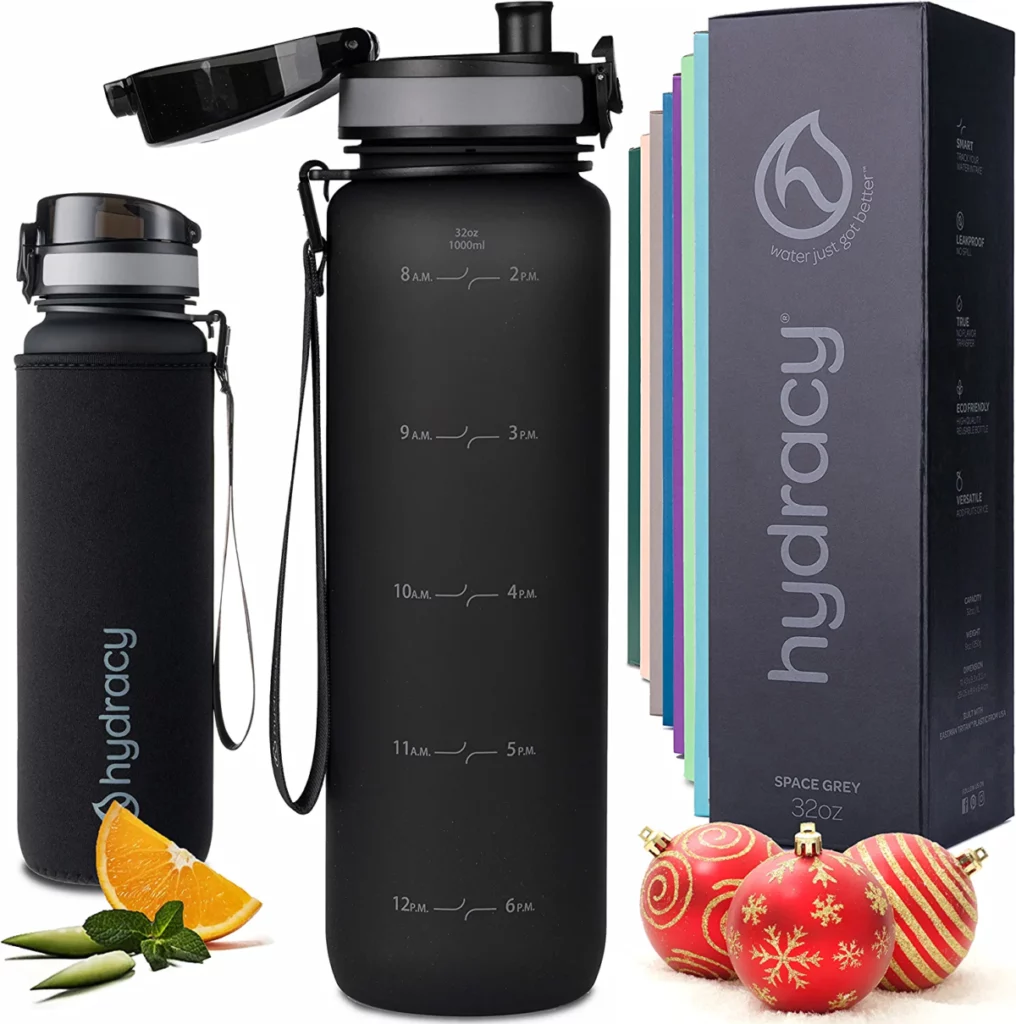
How To Prevent Musty Smells In Water Bottles (Why Does My Water Bottle Smell Musty)
Preventing musty smells from developing in your water bottle is easier than you might think. By following these tips, you can ensure that your water bottle stays fresh and odor-free:
1. Clean Your Water Bottle Regularly
Proper cleaning is the most important step in preventing musty smells in your water bottle. After each use, wash your water bottle thoroughly with soap and warm water. You can also use a bottle brush to scrub the inside of the bottle. Rinse it well and let it air dry completely before using it again.
2. Avoid Prolonged Exposure to Heat and Sunlight
Bacteria and mold thrive in warm, moist environments. To prevent musty smells, avoid leaving your water bottle in hot temperatures or direct sunlight for prolonged periods of time. If you’re going to be outdoors in hot weather, consider using an insulated water bottle to keep your water cool and fresh.
3. Use Fresh Water
If you’re using tap water to fill your water bottle, it’s important to make sure the water is fresh and clean. If your tap water has an odor, it may transfer that smell to your water bottle. Consider using a filter to remove impurities and improve the taste and smell of your tap water.
4. Periodically Replace Your Water Bottle
No matter how well you care for your water bottle, it will eventually wear out and become less effective at preventing musty smells. To ensure that you’re always using a clean and fresh water bottle, consider replacing it every six to twelve months.
High-Quality Water Bottles (Why Does My Water Bottle Smell Musty)
Here are some high-quality water bottles that are resistant to musty smells, easy to clean, and durable:
Product Image | Product Name | Key Features | Rating | Price |
| ||||
| ||||
| ||||
| ||||
| ||||
| ||||
| ||||
| ||||
| ||||
|
Choosing The Right Water Bottle (Why Does My Water Bottle Smell Musty)
Choosing the right water bottle involves considering various factors to suit your needs, preferences, and lifestyle. Here are some essential points to help you make the best choice:
- Material: Water bottles come in various materials like stainless steel, glass, plastic, and aluminum. Stainless steel and glass are durable, BPA-free options, while plastic is lightweight and budget-friendly. Aluminum bottles are lightweight and often used for outdoor activities.
- Capacity: Consider your daily water intake needs and the purpose of the water bottle. Smaller bottles (around 16-20 oz) are great for short trips, while larger ones (32-40 oz) are suitable for all-day hydration or outdoor activities.
- Insulation: If you prefer your beverages hot or cold for an extended period, choose an insulated water bottle. Double-walled vacuum insulation can keep drinks at the desired temperature for hours.
- Spout and Lid Design: The spout and lid type can affect convenience and leak-proofing. Options include screw-on caps, flip-top lids, or straw-style spouts. Choose one that fits your drinking preference and activities.
- Portability: Look for features like a carrying handle, carabiner, or wrist strap for easy transportation during outdoor activities or while on the go.
- Ease of Cleaning: Choose a water bottle that is easy to clean and maintain to prevent odors and bacterial growth. Removable lids and wide mouths are usually easier to clean.
- Leak-Proof and Spill-Proof: Ensure that the water bottle has a reliable seal to prevent leaks or spills, especially if you plan to carry it in a bag or backpack.
- BPA-Free and Non-Toxic: Opt for BPA-free and food-grade materials to ensure the safety of the water bottle and avoid harmful chemical leaching.
- Environmental Impact: Consider eco-friendly options like reusable water bottles or ones made from sustainable materials to reduce plastic waste.
- Brand Reputation and Reviews: Research and read customer reviews to gauge the quality, durability, and performance of the water bottle you’re considering.
- Budget: Set a budget range and find a water bottle that meets your criteria while staying within your budget.
- Design and Aesthetics: While not the most critical factor, choosing a water bottle with a design or color you love can add a personal touch to your hydration routine.

How To Avoid Getting Sick From A Musty Water Bottle (Why Does My Water Bottle Smell Musty)
To avoid getting sick from a musty water bottle, follow these preventive measures and good hygiene practices:
- Regular Cleaning: Clean your water bottle thoroughly and regularly using hot, soapy water. Daily rinsing and washing will prevent the buildup of bacteria and mold that can cause health issues.
- Deep Cleaning: Perform a deep cleaning at least once a week. Use cleaning agents like vinegar, baking soda, or specialized bottle cleaning tablets to eliminate stubborn odors and germs.
- Dry Thoroughly: Ensure your water bottle dries completely after cleaning. Moisture can promote the growth of bacteria, so let it air dry upside down or use a clean, dry cloth to dry the interior.
- Avoid Storing Beverages Long-Term: Try not to leave beverages, especially sugary or acidic ones, in the water bottle for an extended period. The sugars and acids can create an environment conducive to bacterial growth.
- Use BPA-Free and Non-Toxic Bottles: Choose water bottles made from BPA-free and food-grade materials to reduce the risk of harmful chemicals leaching into your drink.
- Replace Old or Damaged Bottles: Inspect your water bottle regularly for signs of damage or wear. If you notice cracks, broken seals, or signs of degradation, replace the bottle to maintain cleanliness and prevent health risks.
- Keep Your Bottle to Yourself: Avoid sharing your water bottle with others, as it can spread germs and bacteria.
- Avoid Exposure to Extreme Temperatures: Refrain from leaving your water bottle in extreme temperatures, whether it’s very hot or freezing cold, as such conditions can promote bacterial growth.
- Use Insulated Bottles: Insulated water bottles can help regulate the temperature of your beverage and reduce the risk of bacterial growth.
- Store in a Clean Environment: When not in use, store your water bottle in a clean and dry area to minimize contamination.
- Carry Separate Bottles for Different Beverages: If you like to carry various beverages, consider using separate bottles for each to avoid cross-contamination.
- Monitor Your Health: Pay attention to any changes in your health after using a water bottle with a musty smell. If you experience any symptoms like stomach discomfort or gastrointestinal issues, stop using the bottle and consult a healthcare professional.

Maintaining Freshness On The Go (Why Does My Water Bottle Smell Musty)
Maintaining freshness on the go is essential to ensure that your water bottle remains clean, odor-free, and ready to use at any time. Here are some practical tips for keeping your water bottle fresh while you’re out and about:
- Use Fresh Water: Start with fresh, clean water before leaving home. Avoid using water that has been sitting in the bottle for a long time, as it may have developed an off-putting taste or odor.
- Invest in Insulation: Opt for an insulated water bottle to keep beverages at the desired temperature for longer periods. Insulation helps prevent bacterial growth and maintains the freshness of your drink.
- Choose a Leak-Proof Design: Select a water bottle with a reliable, leak-proof design to prevent any accidental spills that could lead to odors or messes.
- Keep It Sealed: Always ensure that the water bottle is properly sealed when not in use. A tightly closed lid prevents contaminants from getting in and maintains the freshness of the beverage.
- Avoid Adding Flavorings: Refrain from adding flavorings, fruits, or other substances to your water bottle, especially if you plan to leave the water in it for an extended period. These additions can promote bacterial growth and alter the taste.
- Clean with Portable Cleaning Tablets: Carry portable water bottle cleaning tablets or wipes designed for on-the-go use. These can be handy for a quick refresh during outdoor activities.
- Use a Protective Sleeve or Case: Invest in a protective sleeve or case for your water bottle. It not only helps to keep your drink at the right temperature but also protects the bottle from external contaminants while you’re on the move.
- Empty and Rinse Regularly: If you’re carrying water for several hours, try to empty and rinse the bottle periodically with clean water to prevent any residue buildup.
Quick Fixes For Musty Smells (Why Does My Water Bottle Smell Musty)
When it comes to quick fixes for musty smells in water bottles, here are some effective solutions to help eliminate odors promptly:
- Baking Soda Shake: Add a tablespoon of baking soda to the water bottle, fill it with warm water, and shake vigorously. Let it sit for a few minutes before rinsing thoroughly. Baking soda helps neutralize and absorb odors.
- Vinegar Rinse: Fill the water bottle with a mixture of equal parts white vinegar and water. Allow it to sit for 10-15 minutes, then rinse thoroughly. Vinegar is known for its deodorizing properties.
- Lemon Freshness: Cut a lemon in half and squeeze its juice into the water bottle. Add some warm water and shake well. Let it sit for a few minutes before rinsing. Lemon has a pleasant aroma that can help mask musty smells.
- Denture Tablets: Drop a denture cleaning tablet into the water bottle, fill it with water, and let it fizz. The effervescent action can help dislodge odor-causing particles. Rinse thoroughly afterward.
- Activated Charcoal: Place a couple of activated charcoal granules or a charcoal filter inside the water bottle and leave it overnight. Charcoal can absorb odors and impurities.
- Saltwater Soak: Create a saltwater solution by dissolving a tablespoon of salt in warm water. Let the water bottle soak in the solution for a few hours, then rinse thoroughly.
- Tea Tree Oil Spray: Mix a few drops of tea tree oil with water in a spray bottle. Spray the inside of the water bottle and let it sit for a few minutes before rinsing. Tea tree oil has antimicrobial properties that can help combat odors.
- Sunlight Exposure: Leave the open water bottle in direct sunlight for a few hours. Sunlight can naturally help kill bacteria and freshen the bottle.
- Dryer Sheet Trick: Place a scented dryer sheet inside the water bottle, seal it, and let it sit overnight. The dryer sheet can impart a fresh scent to the bottle.
Always ensure to rinse the water bottle thoroughly after using any of these quick fixes to remove any residue or taste left behind by the cleaning agents. If the musty smell persists despite trying these quick fixes, a more thorough cleaning may be necessary, as outlined in the “Best Cleaning Practices” section.
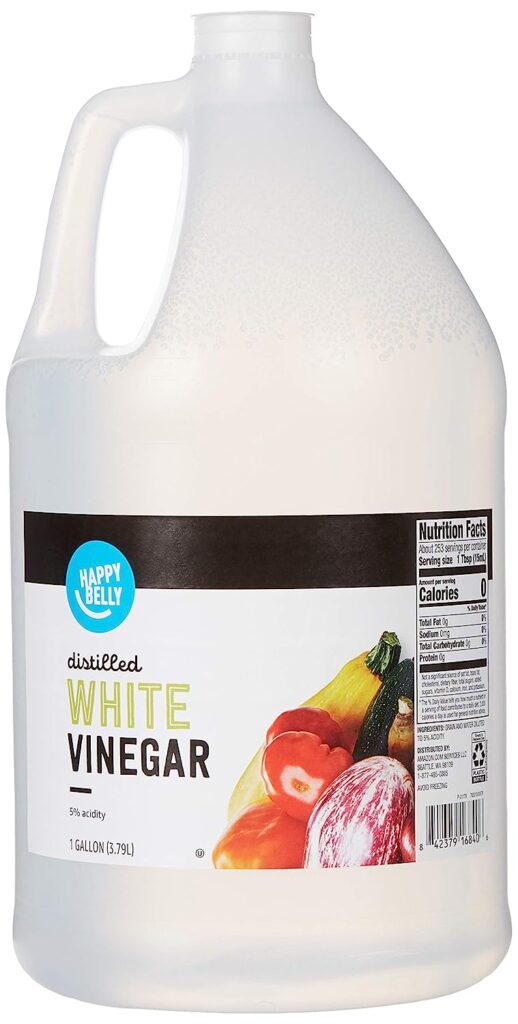
Best Cleaning Practices (Why Does My Water Bottle Smell Musty)
The best cleaning practices for water bottles are essential to maintain cleanliness, prevent odors, and ensure your health and safety. Follow these guidelines for effective water bottle cleaning:
- Daily Rinse: After each use, rinse the water bottle with warm water to remove any remaining liquid and debris.
- Use Hot, Soapy Water: Clean the water bottle thoroughly with hot, soapy water. Use a mild dish soap that is safe for food containers.
- Use a Bottle Brush: Invest in a long-handled bottle brush or sponge specifically designed for cleaning water bottles. It helps reach the bottom and corners for a more thorough cleaning.
- Pay Attention to Lid and Spout: Don’t forget to clean the bottle’s lid, spout, and any other removable parts. These areas are often overlooked but can trap residue and bacteria.
- Deep Cleaning: Perform a deep cleaning at least once a week. Use a solution of equal parts white vinegar and water or baking soda and water to soak the bottle overnight. Rinse thoroughly in the morning.
- Avoid Harsh Chemicals: Refrain from using harsh chemicals or bleach as they can leave harmful residues and affect the taste of beverages.
- Regular Inspections: Regularly inspect your water bottle for signs of damage or wear. Replace it if you notice cracks, broken seals, or degraded materials.
- Thorough Drying: Allow the water bottle to dry completely after washing. Leave it open to air-dry upside down on a dish rack or drying mat.
- Avoid Storing Beverages Long-Term: Avoid leaving beverages, especially sugary or acidic ones, in the water bottle for prolonged periods, as they can promote bacterial growth.
- Regular Replacement: Consider replacing your water bottle periodically, especially if it shows signs of wear or persistent odors that can’t be eliminated.
- Carry Cleaning Tablets or Wipes: When you’re on the go or traveling, carry portable water bottle cleaning tablets or wipes to refresh the bottle when access to soap and water is limited.
- Avoid Freezing or Excessive Heat: Avoid extreme temperature conditions, such as freezing the water bottle or leaving it in a hot car, as they can affect the integrity of the bottle and promote bacterial growth.
The Bottom Line On Why Does My Water Bottle Smell Musty
So, why does my water bottle smell musty? Musty smells in water bottles can be a common problem, but with proper cleaning and maintenance, it’s possible to prevent them from occurring.
Additionally, using high-quality water bottles that are resistant to odors and bacteria can make a big difference in the overall freshness and taste of your drinking water.
By following the tips outlined in this article, you can ensure that your water bottle stays fresh and odor-free and that you’re always drinking clean, healthy water. Remember to clean your water bottle regularly and consider investing in a high-quality, durable water bottle that meets your needs.










